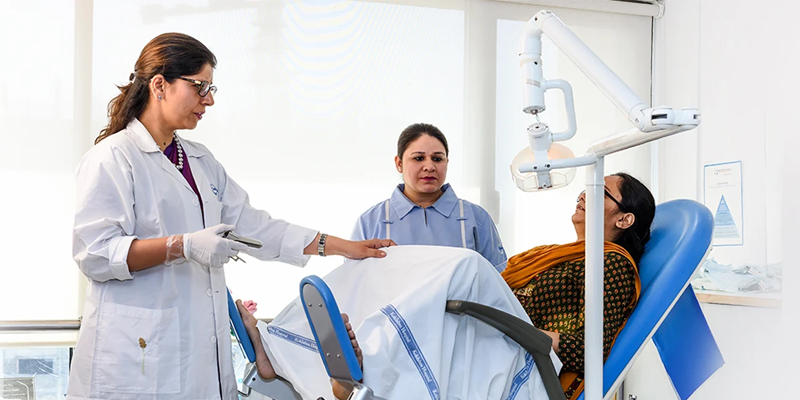
A gynecologist is a medical professional who specializes in the health and well-being of the female reproductive system. They provide care and treatment for women from adolescence through adulthood, addressing a wide range of reproductive health issues. Gynecologists play a crucial role in promoting women's health and helping them maintain a high quality of life. In this article, we will explore the responsibilities, qualifications, and importance of gynecologists in more detail.
Gynecologists have a broad range of responsibilities that encompass both medical and surgical aspects of women's health. They conduct routine check-ups and screenings, such as Pap smears, breast examinations, and pelvic exams, to detect early signs of diseases like cervical cancer or breast abnormalities. These screenings are essential for early diagnosis and timely intervention, increasing the chances of successful treatment.
One of the primary roles of a gynecologist is to provide care and support throughout a woman's reproductive journey. They offer guidance and counseling on family planning, contraception methods, and help women make informed decisions about their reproductive health. Gynecologists also play a crucial role in prenatal care, providing comprehensive medical supervision during pregnancy, monitoring fetal development, and ensuring the well-being of both the mother and baby.
Gynecologists diagnose and treat various reproductive health conditions and disorders. They manage menstrual problems, such as irregular periods, heavy bleeding, or severe menstrual cramps. They also address issues like polycystic ovary syndrome (PCOS), endometriosis, uterine fibroids, and pelvic inflammatory disease (PID). Gynecologists are skilled in performing surgeries, including hysterectomies, laparoscopies, and procedures to address infertility or correct anatomical abnormalities.
To become a gynecologist, one must complete extensive education and training. After obtaining a bachelor's degree in a relevant field, aspiring gynecologists must attend medical school to earn a Doctor of Medicine (M.D.) or Doctor of Osteopathic Medicine (D.O.) degree. Following medical school, they enter a residency program specializing in obstetrics and gynecology, which typically lasts four years. During this residency, they gain hands-on experience in diagnosing and treating various reproductive health conditions under the guidance of experienced practitioners.
Apart from medical expertise, gynecologists must possess excellent communication and interpersonal skills. They deal with sensitive and personal health matters, requiring empathy, compassion, and the ability to establish trust with their patients. Gynecologists create a safe and supportive environment for women to discuss their concerns openly, ensuring that patients feel comfortable and respected throughout their visits.
The role of gynecologists in women's health is of paramount importance. They provide comprehensive care, addressing not only physical health but also mental and emotional well-being. Gynecologists educate women about sexual and reproductive health, empowering them to make informed decisions regarding contraception, sexually transmitted infections (STIs), and preventive measur
Gynecologists also play a vital role in detecting and treating gynecological cancers, such as cervical, ovarian, and uterine cancer. Through regular screenings and early detection, they significantly improve the chances of successful treatment and survival rates. Additionally, gynecologists work closely with other medical professionals, including oncologists, urologists, and endocrinologists, to provide multidisciplinary care to their patients when necessary.
In conclusion, gynecologists are specialized medical professionals dedicated to the health and well-being of the female reproductive system. Their role extends beyond diagnosis and treatment, encompassing preventive care, family planning, and emotional support. By providing comprehensive care and addressing a wide range of reproductive health issues, gynecologists contribute significantly to women's overall health and quality of life. Their expertise and dedication make them invaluable in promoting and safeguarding women's health at every stage of life.
